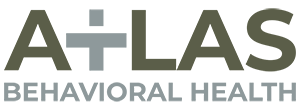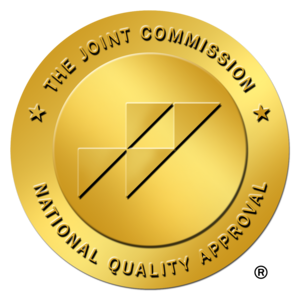If you’re wondering how to tell someone is on coke, you’re not alone. Cocaine use can affect every part of a person’s life—physically, mentally, emotionally, and financially.
At Atlas Behavioral Health, we help families recognize the signs early and guide their loved ones toward recovery. This guide explains what to look for and how to help.
Physical Signs of Cocaine Use
One of the first ways to learn how to tell someone is on coke is by noticing changes in their body. Physical symptoms can be clear, especially after short-term or chronic cocaine use. You might see a runny nose, nosebleeds, or frequent sniffing. This is because cocaine causes irritation and damage to blood vessels inside the nose.
Cocaine users also tend to have a high heart rate, chest pain, and high blood pressure. These symptoms raise the risk of a heart attack. Loss of appetite and sudden weight changes are also common.
Other physical signs of cocaine use include shaking, sweating, and increased body temperature. You may also notice white powder around the nose or mouth, poor personal hygiene, or signs of overdose effects like difficulty breathing.
Understanding cocaine addiction starts with spotting these warning signs. At Atlas, our treatment programs are designed to address the physical damage caused by drug abuse, while helping clients build a healthier future.
Behavioral Signs of Cocaine Use
Knowing how to tell someone is on coke often comes down to changes in their actions. Cocaine is a powerful stimulant drug that affects the central nervous system. People use cocaine for a short-lived high, but it often leads to unpredictable behavior.
You might notice mood swings, violent behavior, or risky actions. Someone using crack cocaine or powder may lie, steal, or hide their drug use. They might act unusually confident, have a decreased need for sleep, or talk very fast.
Cocaine abuse can lead to financial problems, missed work, and broken promises. Family members may feel confused, hurt, or helpless as their loved one becomes more secretive.
Over time, these behaviors can cause social isolation and strain important relationships. If you’re seeing these signs of cocaine addiction in someone close to you, it’s important to know you’re not alone. Atlas Behavioral Health offers group therapy and support groups to help both clients and families navigate this challenging time.
Psychological Effects of Cocaine Use
The mental and emotional changes are another key way to know how to tell someone is on coke. Cocaine’s effects on the brain can mimic or worsen mental health conditions like Bipolar disorder or other mood disorders. People may become extremely anxious, irritable, or paranoid.
With long-term use, cocaine use disorder can lead to symptoms of cocaine addiction such as depression, panic attacks, and even psychosis. It can also trigger or worsen existing mental illness, making it harder to manage daily life.
Cocaine users often experience poor decision-making, impulsivity, and emotional outbursts. The crash after the high can leave them feeling hopeless or emotionally flat.
At Atlas Behavioral Health, we understand that substance use disorders often go hand-in-hand with other mental health disorders. That’s why our treatment options focus on the whole person—treating both the drug addiction and the underlying mental health issues with care and compassion.
Long-Term Effects of Cocaine Use
Learning how to tell someone is on coke also means understanding the long-term effects. Chronic cocaine use can lead to serious health problems. Over time, cocaine causes damage to the heart, lungs, and brain. It puts users at higher risk for stroke, heart attack, and memory loss.
Cocaine use disorder often brings on severe withdrawal symptoms, including fatigue, depression, and intense cravings. People may use larger amounts just to feel normal again.
The financial difficulties caused by long-term use can destroy careers and families. Drug abuse also affects personal hygiene, leading to noticeable decline in appearance and health.
Symptoms of cocaine abuse build over time—especially when paired with alcohol abuse or other substance use disorders. These negative consequences can spiral if left untreated.
At Atlas Behavioral Health, our programs provide early intervention and personalized care to help break the cycle of addiction. We work with medical professionals and licensed therapists to restore health and hope.
How to Approach Someone You Suspect Is Using Cocaine
Knowing how to tell someone is on coke is only the first step. The next step is figuring out how to approach them with care. It’s hard to talk to a loved one about cocaine addiction, especially when emotions run high.
Start by choosing a calm, private setting. Focus on expressing concern, not judgment. Use phrases like “I’ve noticed some changes,” or “I’m worried about you.” Avoid bringing up every bad choice—they probably already feel ashamed.
Share specific observations: mood swings, loss of appetite, or physical signs of cocaine use like a runny nose or chest pain. Encourage them to speak with medical professionals who can evaluate symptoms of cocaine use and recommend the right treatment options.
Atlas Behavioral Health offers confidential support for families facing cocaine addiction. We respect your privacy practices and protect all categories of personal information, including your email address, so you can feel safe reaching out.
Treatment Options for Cocaine Addiction
Once you know how to tell someone is on coke, it’s time to explore treatment options. Cocaine addiction treatment usually starts with managing withdrawal symptoms. This may include medical supervision to monitor blood pressure, heart rate, and other health risks.
Cocaine treatment at Atlas includes a mix of evidence-based therapies, group therapy, and life skills training. We also treat co-occurring mental health disorders, like Bipolar disorder or depression, that may fuel cocaine abuse.
Our treatment centers in Peachtree Corners, GA, support clients through each stage of recovery. We address the root causes of substance use disorders, while helping people build a foundation for long-term sobriety.
Every program is built around your unique needs and includes access to support groups, therapy, and professional help. Whether you or a loved one is dealing with the short-term symptoms of cocaine use or the long-term damage, our team is ready to help anyone achieve physical and emotional sobriety.
A New Path Toward Hope
Learning how to tell someone is on coke can feel overwhelming—but you’re not alone. At Atlas Behavioral Health, we help individuals and families take the next step toward healing.
Cocaine addiction doesn’t have to define your story. With the right help, change is possible.


